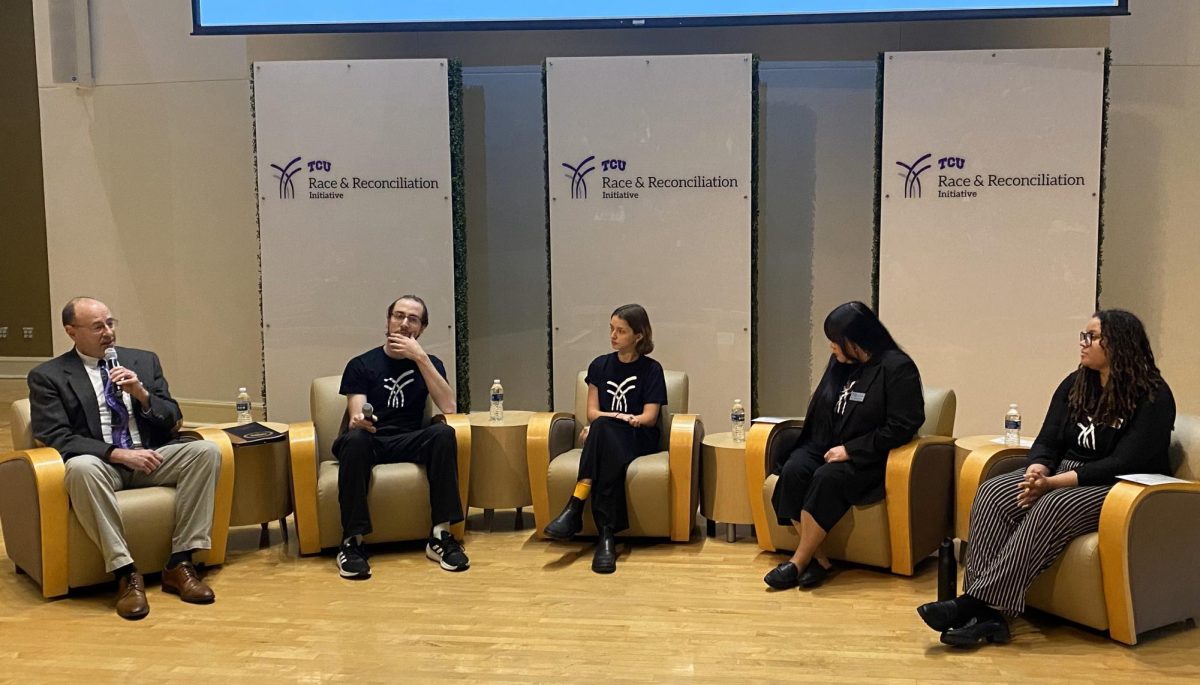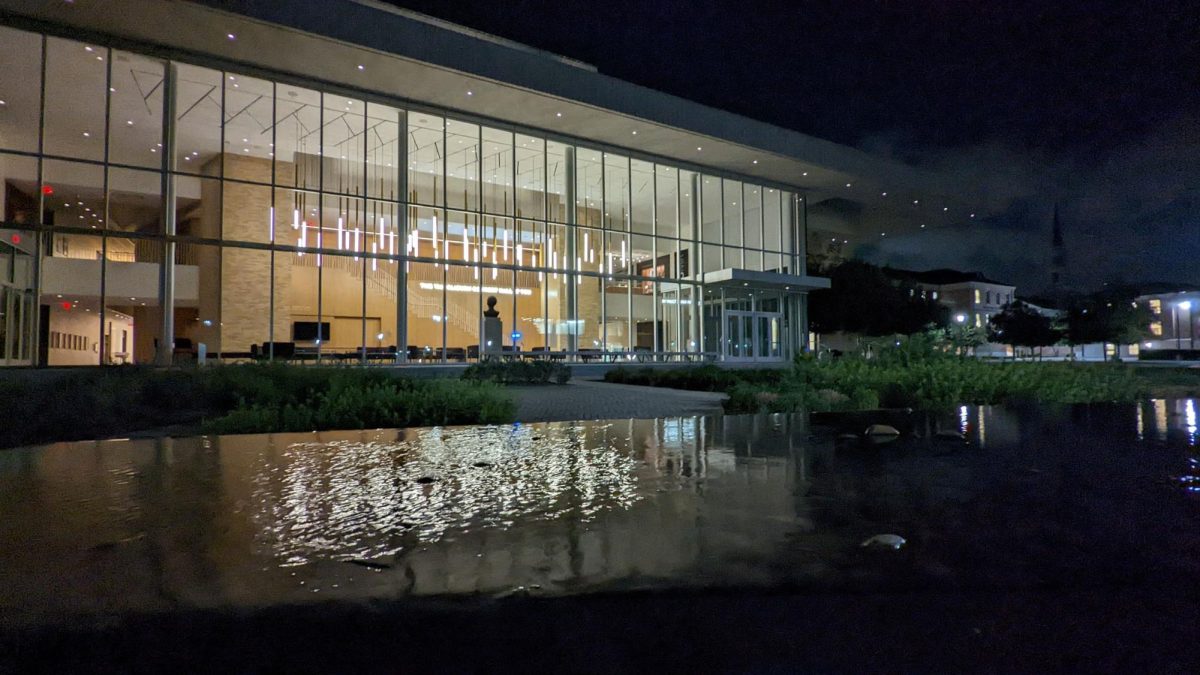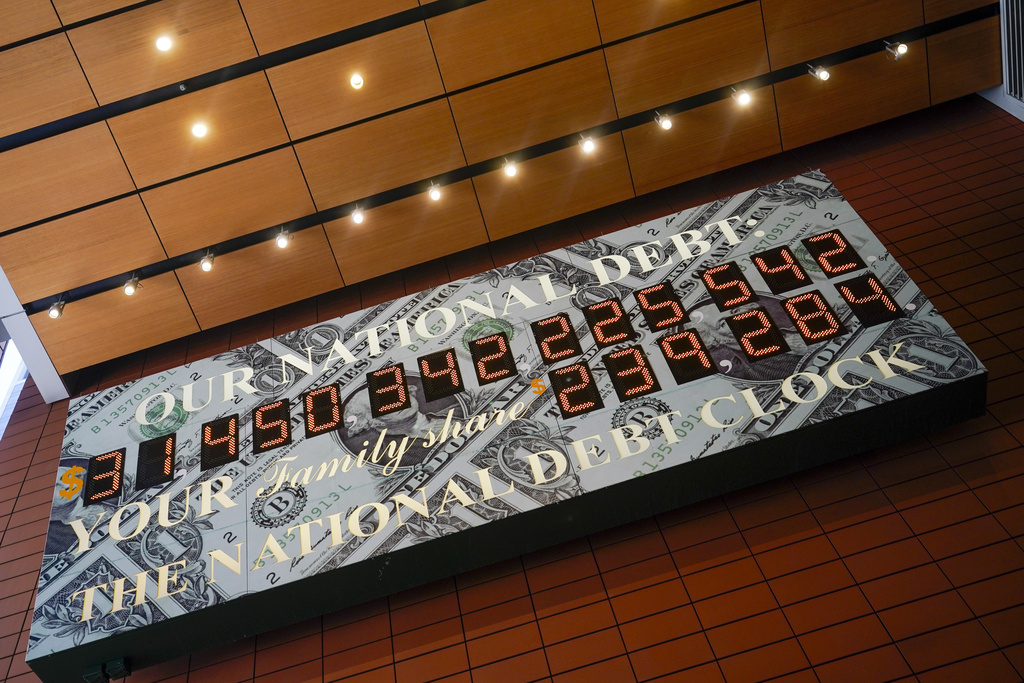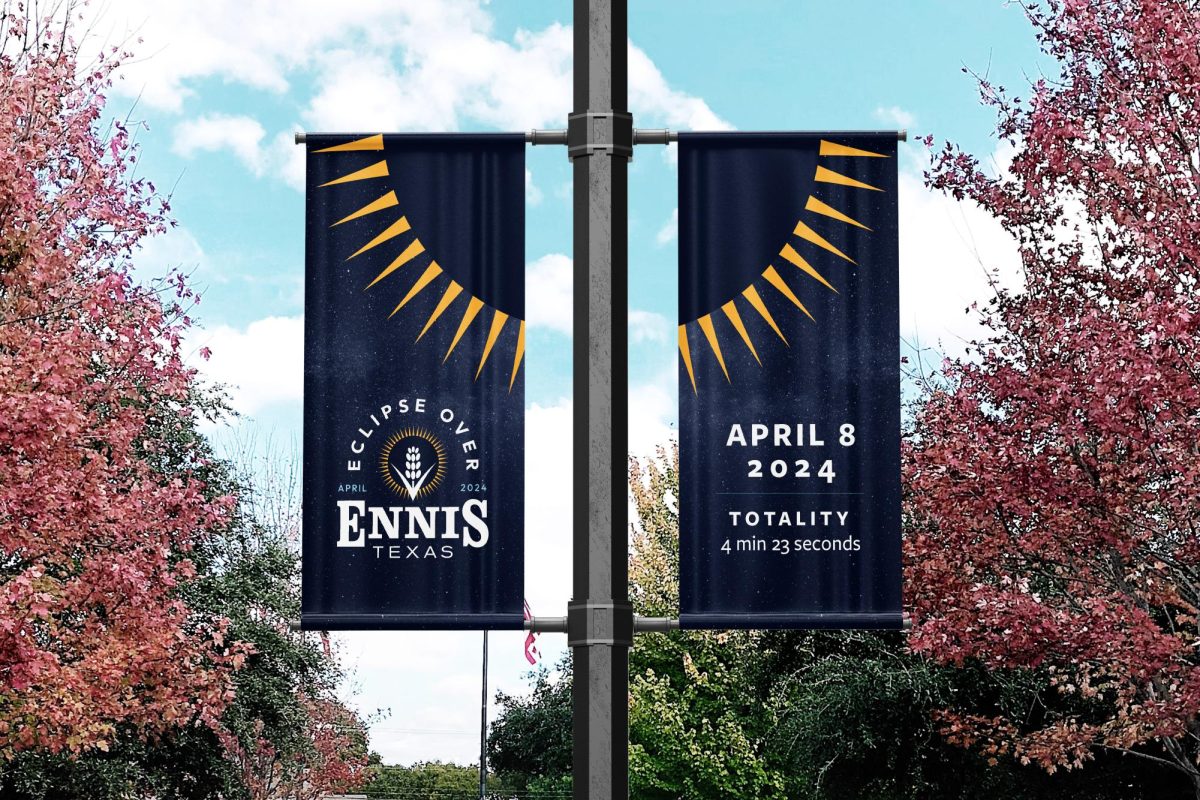Each Sunday at 10:30 a.m., college students file into the Aardvark bar on Berry Street.
But they aren’t there to drink. They’re going to church.
Impact, the college ministry of Christ Chapel Bible Church, started meeting in the popular TCU watering hole two years ago when the main church campus built a parking garage where the college students met. The church moved its college service to The Aardvark, and the ministry has stayed there ever since.
“I don’t think the bar part really bothers me- it’s just really funny singing worship and there’s a Shiner sign or a Coors light sign in the background,” Impact attendee Eric Parikiakis, a recent TCU graduate, said.
Christ Chapel isn’t the only church that meets in a bar in Fort Worth. Kyrie Fort Worth meets every Sunday night at Zio Carlo’s on Magnolia Street, and another group holds church at Mambo’s, a small blues bar in downtown Fort Worth.
This trend isn’t unique to Fort Worth. The “bar church movement” is in other cities in Texas, New York, California, Oregon, Connecticut and Michigan, among other places.
The reason behind this trend, Christian author Brett McCracken said in an interview, is because of a shift in how main-line Protestant churches view alcohol.
“There’s been kind of a tempestuous relationship between that group and alcohol, and this idea that you can’t be a good Christian and drink alcohol at the same time,” McCracken said. “I think the lines have been blurred between the sacred and the secular.”
That shift in attitude may have to do with a generational shift in the church, McCracken said.
“It might be that the younger people are swinging the pendulum away from fundamentalist Christianity—I think there is some sort of overcorrecting, to now go out of our way to do something pseudo-shocking for attention,” McCracken said.
Some Aardvark attendees said that there is a bit of overcorrecting there, but also that the bar is simply a convenient spot to meet.
“I think it’s definitely something that older generations look on as strange,” Allie Deufel, another TCU graduate, said. “But I’ve heard stories about people being more open to it because it’s not in a church building, especially since it’s closer to campus.”
Parikakis said that one reason the church has been so successful is because of its proximity to TCU.
“It’s just one of the closer places of worship to students on campus because you can walk from your dorm,” Parikakis said.
This idea of church meeting in a bar illustrates another generational point- that church isn’t just about the building anymore.
“It’s really cool just to see church defined in a different way,” Deufel said. “It’s become more about the community of the people that you’re meeting with instead of the building you meet in.”
That attitude may be a good idea to help reach people that don’t go to church, but McCracken said that church leaders who want to employ that strategy should “proceed with caution.”
“Taking a close look at their motivations for holding their church in a bar are important,” McCracken said. “The church can and should meet in those places, but they shouldn’t become attuned to the pattern of behavior that goes into those places.”





